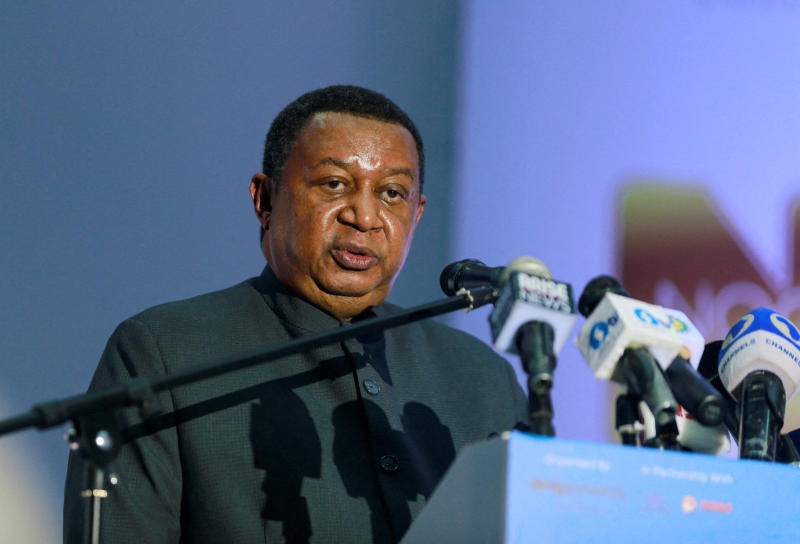
Organization of the Petroleum Exporting Countries (Opec) secretary-general Mohammad Barkindo, an oil industry veteran who steered the group through the creation of the Opec+ alliance, has died in his native Nigeria, according to officials.
Barkindo, 63, was in the final weeks of his six-year tenure as the top diplomat at the Opec, where he headed its Vienna-based secretariat. He had returned to Abuja in preparation for a post-Opec career.
"We lost our esteemed Dr (Mohammad) Sanusi Barkindo," NNPC's chief executive Mele Kyari tweeted, without providing any further details about the circumstances of Barkindo's death.
"Certainly a great loss to his immediate family, the NNPC, our country Nigeria, the Opec and the global energy community. Burial arrangements will be announced shortly," Kyari wrote.
"This tragedy is a shock to the Opec Family," the Vienna-based Opec tweeted.
"We express our sorrow and deep gratitude for the over 40 years of selfless service that... Barkindo gave to Opec. His dedication and leadership will inspire Opec for many years to come."
Only a few hours earlier, Barkindo had met Nigerian president Muhammadu Buhari in Abuja.
"You were able to successfully navigate the organisation through turbulent challenges," the president said.
Barkindo oversaw one of the most turbulent periods in the organisation’s history, beginning with the creation of the Opec+ coalition just months after his appointment in summer 2016. That saw the group enter a once-unthinkable partnership with non-members such as Russia. Barkindo engaged n a flurry of shuttle diplomacy to bring the oil producers together, personally meeting leaders including Russia’s Vladimir Putin.
His term spanned a series of production cuts intended to keep global oil markets in balance, culminating in the unprecedented reductions during the Covid-19 pandemic in 2020. His successor, Haitham Al-Ghais of Kuwait, was already due to assume the position from the beginning of next month.







